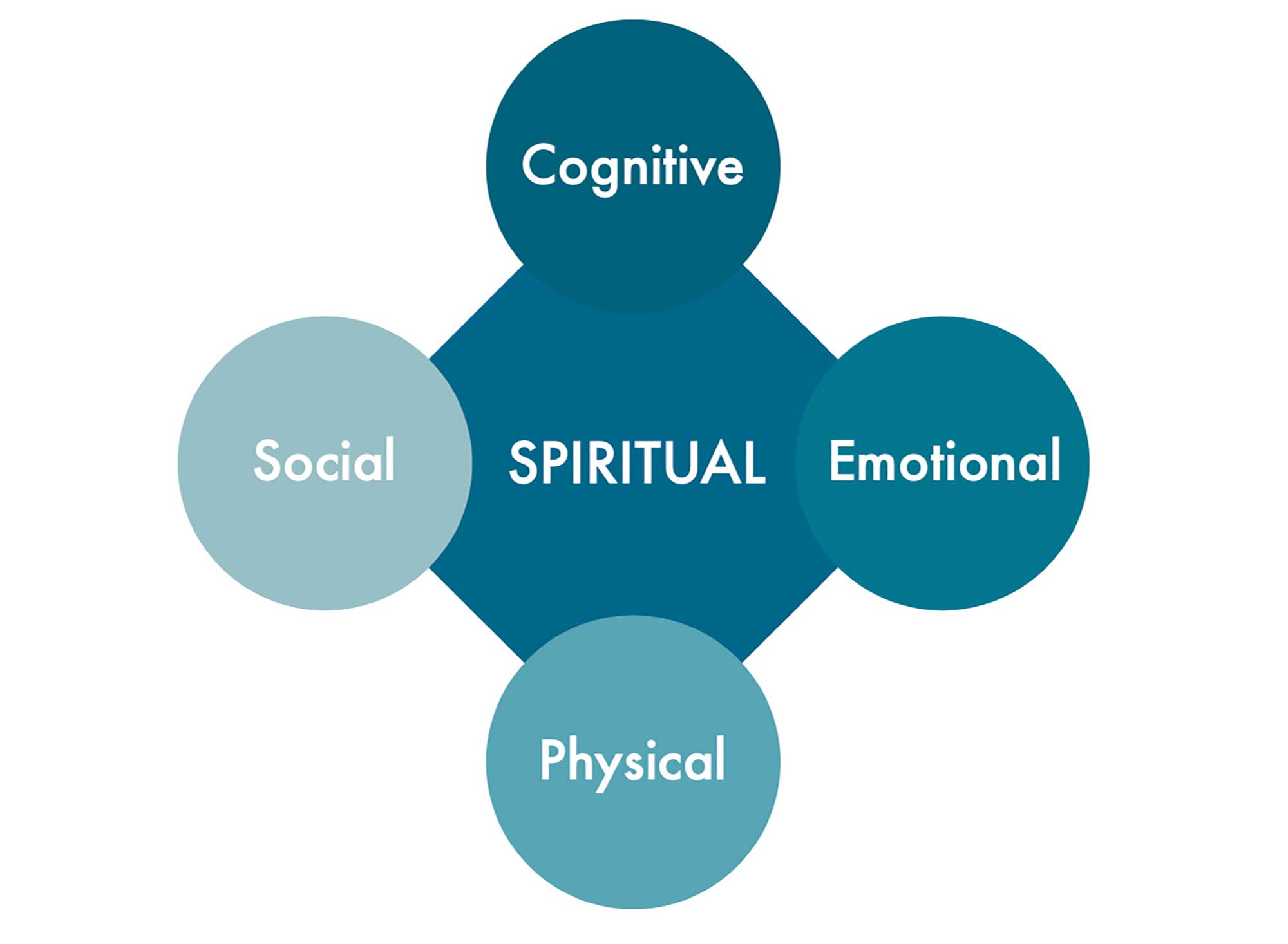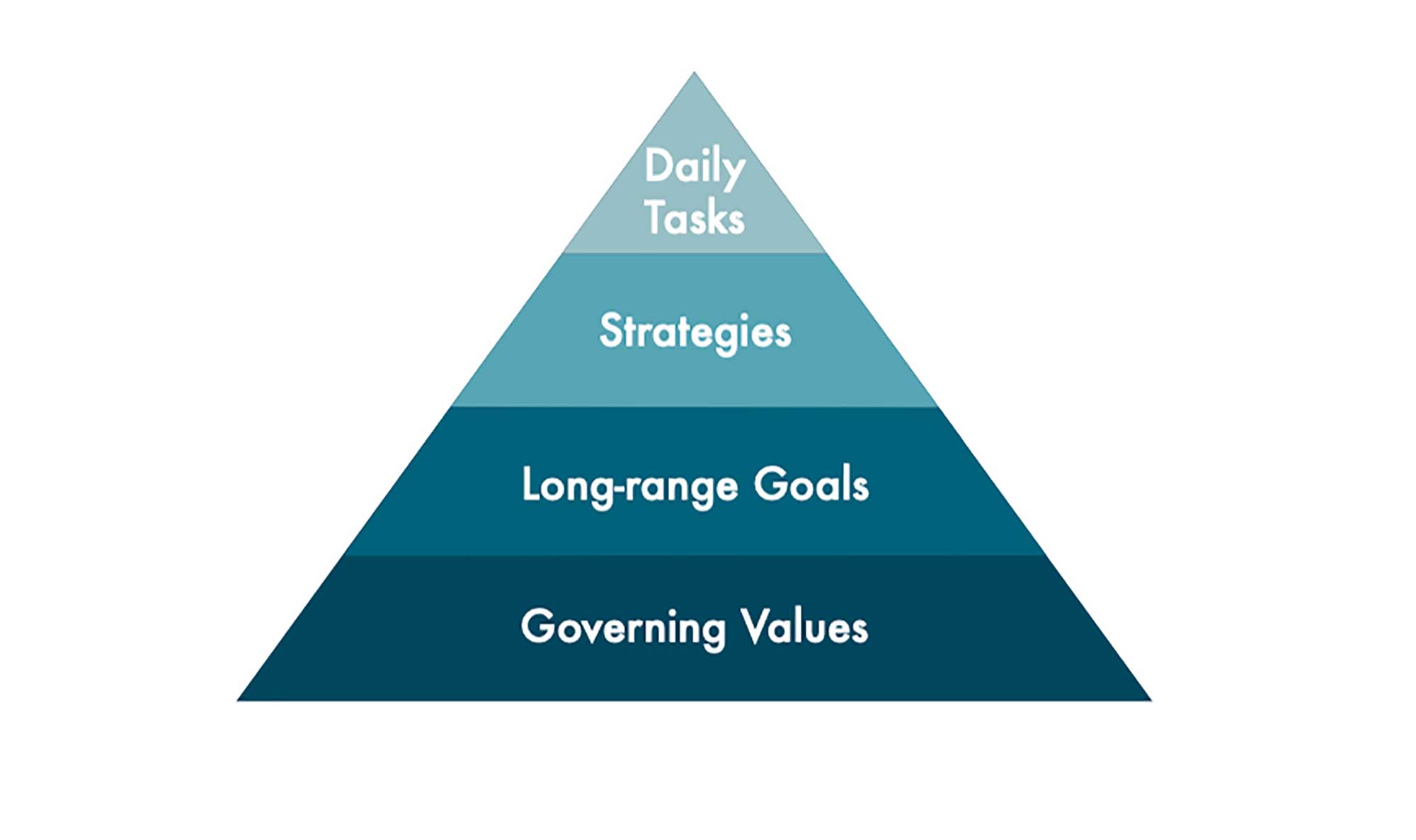Taking Charge of Your Life
SUCCESS
Success
“Knowing how to manage your mind – how to understand and deal with stress, lack of confidence, anxiety, depression— is as important as knowing how to handle the strategic and organizational challenges of your business.”
Gillian Butler & Tony Hope, Managing Your Mind
WHAT TO EXPECT
This lesson will assist you in growing toward fulfilling your potential.
It looks at success wholistically—the expression of who you are, how you relate to the people in your life, your role in the workplace, your personal life and time management.
It can help you get in touch with your deeper values as the key to fulfilling your potential.

The goal is to assist you in achieving balanced, long-term fulfillment and happiness.
Fulfilling Our Potential
Your actual potential probably exceeds your expectations of what you might achieve in life.
The Taking Charge of Your Life program is designed to help you become aware of, manage and constructively use your power potential.
Anthony Robbins
“Human beings have the awesome ability to take any experience of their lives and create a meaning that disempowers them or one that can literally save their lives.”
Awaken the Giant Within
Discover More
The pursuit of power for its own sake is not healthy or productive. It needs to be combined with love and self-discipline.
It is from this wholistic perspective that we now outline the steps that will help you get in touch with and focus your power potential.
Integrity and Sucess
There is a modern trend to recognise integrity as the central factor of personal success. Integrity is experienced when our decisions and goals express our true values. World-renowned specialists, in corporate and business management and in personal motivation, are talking about integrity.
Anthony Robbins
“Those who know their values and live by them become the leaders of our society.”
Awaken the Giant Within
Discover More

Living Our Values
“THE KEY TO ACCESSING OUR POWER POTENTIAL
What is Value?
The very essence of personal development is the congruity between values, goals, and lifestyle.

“A value is an enduring belief . . .”
Milton Rockeach, The Nature of Human Values
Discover More
Why so few—what’s so elusive about our values?
Do you think this could be a reason why so many are unfulfilled?
“Those who do not know what their values are will drift. . . because they have never thought about what is important to them.”
Burns Managing people in Changing Times
Evaluating Values
“We wish we could say that only moral people can develop abilities to get others to want to follow them. But we cannot.”
James M. Kouzes & Barry Z. Possner, Credibility
Anthony Robbins
“There is power in individuals who congruently lead lives where their philosophies and actions are one.”
Awaken the Giant Within
Good and Bad Values?
Leading writers on motivation and leadership tend to refer to good values as those that “contribute to the common good.”
That is a great idea but who decides the common good? How can we be objective? Upon what principles do we base our choice of values?
This is a critical question—for it will not only influence your choice of values, but also the way in which you focus and apply your personal power potential.
Discover More
“The direction of our lives is controlled by the magnetic pull of our values.”
- ANTHONY ROBBINS
AWAKEN THE GIANT WITHIN
Choose Values
Perfectionists are focused on what “ought” to be, on what other people “should” do, on what they “have” to do. They set goals that are impossible to achieve. They experience “anger” when they can’t fulfil their impossible demands on themselves and others. Their strict demands actually stand in the way of getting the task done. They are preoccupied with rules, orders, scheduling & details.
The fact that there are constructive and destructive values means choice is imperative.
The “other” people in our lives initially programmed our values during childhood.
Now our value system, as adults, and the direction of our lives is our choice.
Is there a basis for choosing values, which are not only good for us but also valuable in our community?
A premise for Values
Many have found the Ten Commandments to be an excellent premise for their values. This document, originally inscribed on stone and now found in the Bible, is said to be one of the oldest and yet most succinct expressions of moral conduct ever written.
All the fundamental principles of life can be found here.
You will note the principles of life, decency, respect, sexuality, rights and reputation.
Imagine how differently the history and current profile of our world might be if these principles were at the heart of all value systems?
Spend a few moments considering these basic principles and how they correspond with your own value system.
Discover More
“You shall have no other Gods before me.
Do not worship images.
Do not use God’s name for evil purposes.
Remember the Sabbath day to keep it holy.
Honour your father and mother.
You shall not murder.
You shall not commit adultery.
You shall not steal.
You shall not bear false witness.
You shall not be envious.”
Exodus 20:3-17, A summary from NIV Bible
Getting in Touch with Your Values
“Every time a value is born, existence takes on a new meaning; every time one dies,
some part of that meaning passes away.” Joseph W. Crutch
Discover More
“When your daily activities reflect your governing values you experience inner peace.”
Hyrum W. Smith, Time & Life Management
Personal Management
Setting goals and the management of time and events is the practical end of taking charge of our lives.
The benefits we take away from this or any personal development program will be determined by personal planning.
Hyrum W. Smith
“When your daily activities reflect your governing values you experience inner peace.”
Time & Life Management

Using our own potential
1. Clarifying Goals.
A vital step toward empowerment is to clarify goals together with
the costs and risks involved with each option.
2.Taking Responsibility for Choices.
We need to “own” our choices, even if they don’t always lead to the expected outcome.
3.Staying Focused on the Result.
The original goal should be the continuing central motivation. There is a danger to allow process to take precedence over goals. Power will always be compromised as a result.
4. Making Change a Constant Choice.
Unplanned variables call for relevant responses. Power is expressed in the capacity to be flexible as we move toward our goals.
Productivity Pyramind
It is important to focus on the connection between governing values, goal setting and daily organisation. Setting goals that are not aligned with your values may accomplish short-term results. They will not lead to long-term satisfaction. The high cost, in terms of personal frustration, is not worth it. Daily tasks that do not reflect values, goals and strategies can make us busy but not productive–being governed by the urgent rather than the important.
THREE STEPS TO EFFECTIVE DAILY ORGANISATION
Step 1: Make a list of everything you would like to accomplish today. Include professional, recreational, family, spiritual and social tasks. You may end up with a list of twenty or more.
Step 2: Give an A, B or C value to each .Put an A beside each item on the list that “has” to be done today. Then put a B next to those items that are important—anything that should be done today. Then put a C next to any task that is relatively trivial – anything that could be done.
Step 3: Give a Numerical Value to Each Item on the List. Go back over the list again to give a numerical value to the A’s, then the B’s and finally the C’s. The Most important task will be itemised A1 and then A2, etc. Then the B’s: B1, B2, etc. and then the C’s: C1, C2, etc.
This simple daily management strategy will work to multiply your effectiveness whether you’re the CEO of a corporation, a manager, a storeman, a housewife, a student—whoever you are.
Adapted from Time and Life Management by Hyrum Smith

Your Appropriate Workplace
“If we did all the things we are capable of doing, we would literally astound ourselves.”
Thomas Eddison
One of the most important success factors is choosing an appropriate work place.
John L. Holland has developed a vocational model that categorises six work environments.
These categories can also be used to describe the personality orientations of the workers.
The basic goal is to match each “worker” with the “right” work environment.
Read through the personality orientations to see just where you fit. If you are like most, you will have a mixture from two or more categories.
One of the six categories is normally dominant.
Your particular mix of personality factors is unique. That is very important—no one else can make the same contribution to society that you can.
To discover, accept and appropriately express who we are is the essence of personal power.
Six Work Environments
1. Realistic. Building, driving trucks and farming.
2.Investigative. Science & academic research.
3.Artistic. Sculpting, performing and writing are artistic occupations
4. Social. Teaching, religious ministry and social work.
5. Enterprising. Sales, politics and finance are enterprising occupations.
6. Conventional. Accounting, computer technology and pharmacology.
